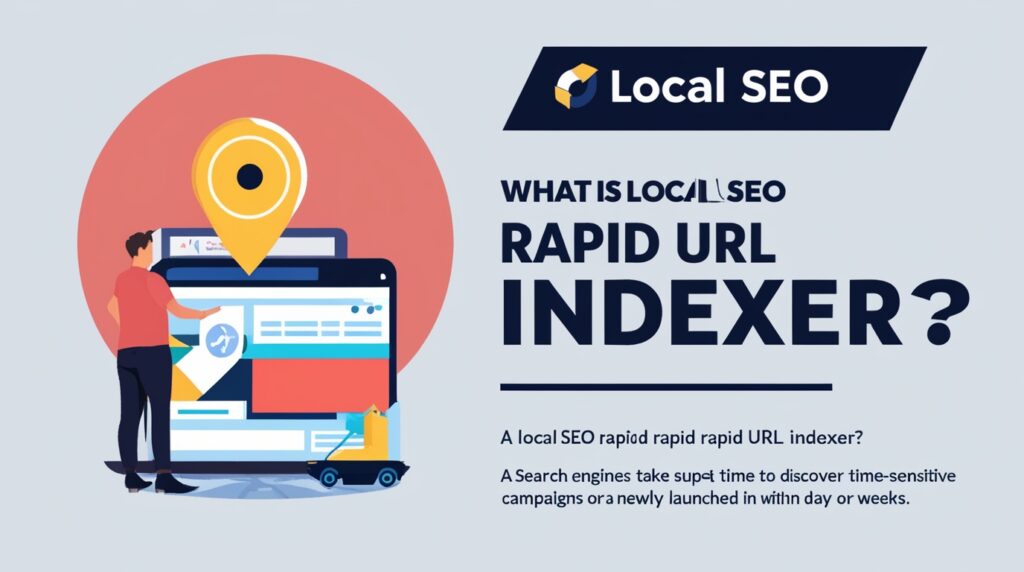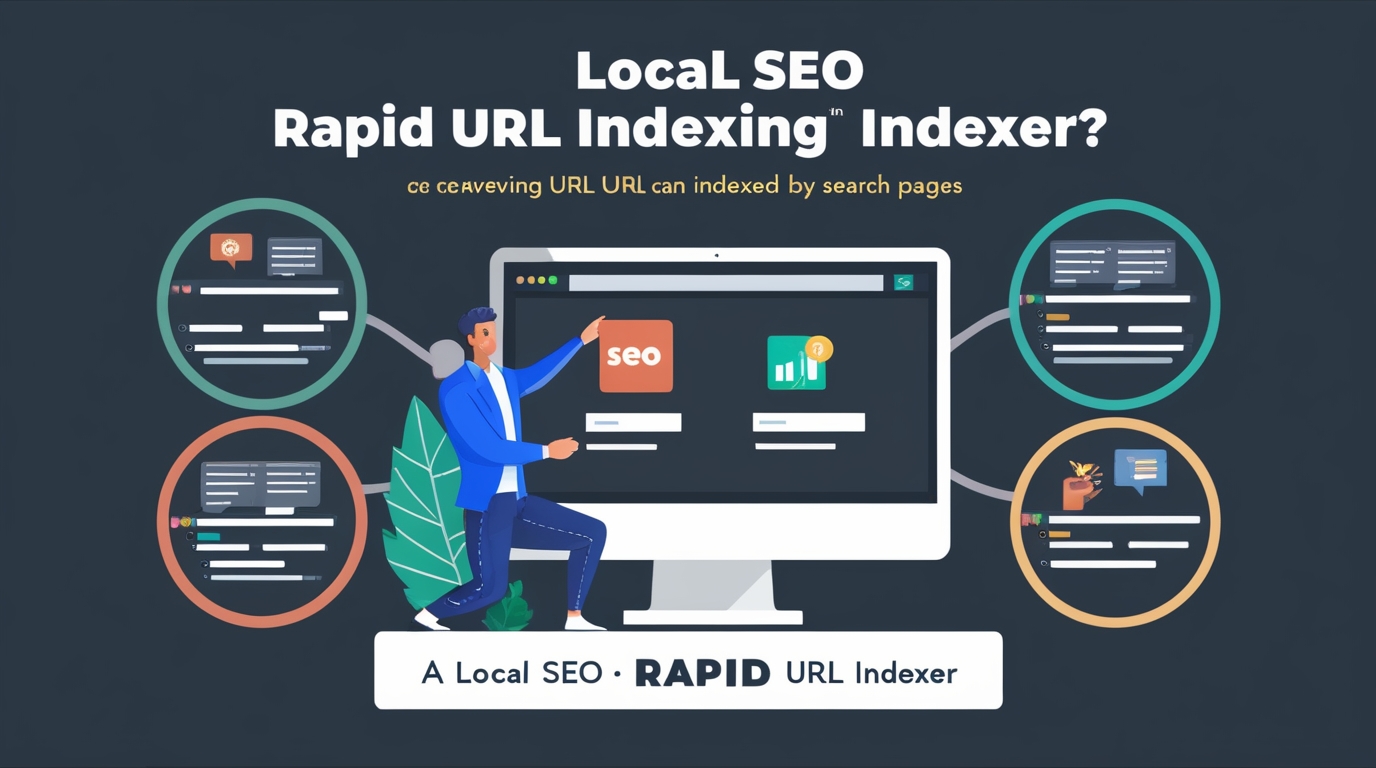In the ever-competitive landscape of local SEO, every second matters. Businesses thrive on visibility, and a local SEO rapid URL indexer ensures that newly created pages, updated content, or critical web changes are indexed by search engines almost immediately. This powerful tool helps local businesses stay ahead of the game by ensuring that search engines can crawl and rank their content faster than ever before.
In this guide, we’ll delve deep into the benefits, mechanics, and strategies of using a local SEO rapid URL indexer to dominate search engine results pages (SERPs) in your area.
What is a Local SEO Rapid URL Indexer?

A local SEO rapid URL indexer is a tool or service designed to speed up the process of having URLs indexed by search engines. Typically, search engines take time to discover and catalog new pages. However, this delay can affect time-sensitive campaigns or newly launched businesses. By leveraging rapid indexing tools, your website’s pages can get crawled and ranked within hours instead of days or weeks.
Why is Rapid Indexing Essential for Local SEO?
Faster Visibility for New Pages
Whether you’ve created a new product page or published a local blog post, search engines must index these pages before they appear in results. Delays can mean missed traffic opportunities. Rapid indexing bridges this gap.
Staying Ahead in Competitive Niches
In local SEO, competition is fierce. Being the first to showcase updated business hours, promotions, or reviews can mean the difference between gaining or losing customers.
Boosting Seasonal Campaigns
Local businesses often run time-sensitive promotions. A rapid URL indexer ensures these pages are live in search results when it matters the most.
How Does a Local SEO Rapid URL Indexer Work?
A rapid URL indexer works by sending direct signals to search engines, urging them to crawl and index your URLs immediately. Here’s how the process typically unfolds:
- Submit Your URL: Input the page’s URL into the indexing tool.
- Send Signals: The tool communicates with search engines, often using APIs or ping services.
- Crawler Prioritization: The search engine prioritizes your submitted URL for crawling.
- Indexing: The content becomes searchable and starts appearing in relevant queries.
Many tools also use additional techniques like sitemap updates and backlinks to expedite the process.
Benefits of Using a Local SEO Rapid URL Indexer
Improved Local Rankings
Search engines prioritize fresh content. Rapid indexing tools ensure your updates or new pages are visible when local searchers are looking.
Enhanced User Experience
By ensuring updated hours, contact details, or promotions are promptly indexed, businesses can provide a better experience to potential customers.
Greater ROI on Content Marketing
With quicker indexing, your blogs, service pages, and other SEO efforts start showing results faster.
Time Efficiency
Manual indexing can be a slow, cumbersome process. Rapid tools automate this, freeing up time for other critical SEO tasks.
Top Tools for Local SEO Rapid URL Indexing
Google Search Console
The gold standard for indexing, Google Search Console allows you to request indexing for new or updated pages directly.
IndexNow Protocol
Supported by search engines like Bing, IndexNow instantly notifies search engines about changes, ensuring fast indexing.
Paid Indexing Services
Some premium platforms offer dedicated rapid indexing features. Services like Linklicious or Omega Indexer are examples.
SEO Plugins for CMS
Tools like Rank Math or Yoast SEO often include options for submitting URLs, making the process smoother for WordPress users.
How to Use a Local SEO Rapid URL Indexer Effectively
Optimize Your URLs
Before submitting, ensure URLs are clean, descriptive, and contain local keywords for better relevance.
Create High-Quality Content
Even with rapid indexing, poor-quality content will struggle to rank. Invest in valuable, localized content that answers user queries.
Monitor Performance
After indexing, use analytics tools to monitor traffic, engagement, and rankings.
Integrate with Other SEO Strategies
Combine rapid indexing with on-page SEO, schema markup, and local citations for optimal results.
Common Mistakes When Using a Rapid URL Indexer
Overloading Search Engines
Submitting too many URLs at once can lead to penalties. Prioritize your most critical pages.
Ignoring Content Quality
Fast indexing won’t help poorly written or irrelevant content. Focus on meeting user intent.
Skipping Manual Verification
Even with rapid tools, always verify indexing status via Google Search Console or similar tools.
How to Optimize Local SEO Alongside Rapid Indexing
Build Local Citations
Listing your business in local directories boosts credibility and ensures search engines trust your content.
Use Schema Markup
Schema helps search engines understand your content better, aiding in faster and more accurate indexing.
Leverage Google My Business
A well-maintained Google My Business profile complements your indexing efforts by improving local visibility.
Conclusion
In today’s fast-paced digital environment, businesses cannot afford delays in search engine indexing. A local SEO rapid URL indexer is a game-changing tool that ensures your pages are visible when it matters the most. By integrating rapid indexing into your broader SEO strategy, you can maximize your local visibility, attract more customers, and stay ahead of competitors.
Embrace rapid indexing as part of your toolkit and watch your local SEO efforts soar.
FAQs About Local SEO Rapid URL Indexing
What is the primary purpose of a local SEO rapid URL indexer?
It speeds up the process of search engines discovering and ranking new or updated pages, ensuring timely visibility.
Does rapid indexing guarantee better rankings?
No, it ensures faster crawling and indexing, but rankings depend on content quality, relevance, and other SEO factors.
Can I use rapid indexing for all types of content?
Yes, but prioritize high-priority pages like service updates, blogs, and product launches.
How often should I use a rapid URL indexer?
Only when you create or update critical content. Overuse may lead to diminishing returns.
Is manual indexing better than automated tools?
Both have their merits. Automated tools save time, while manual indexing allows for more control.
What are the best free rapid indexing options?
Google Search Console and Bing’s IndexNow protocol are excellent free solutions.











